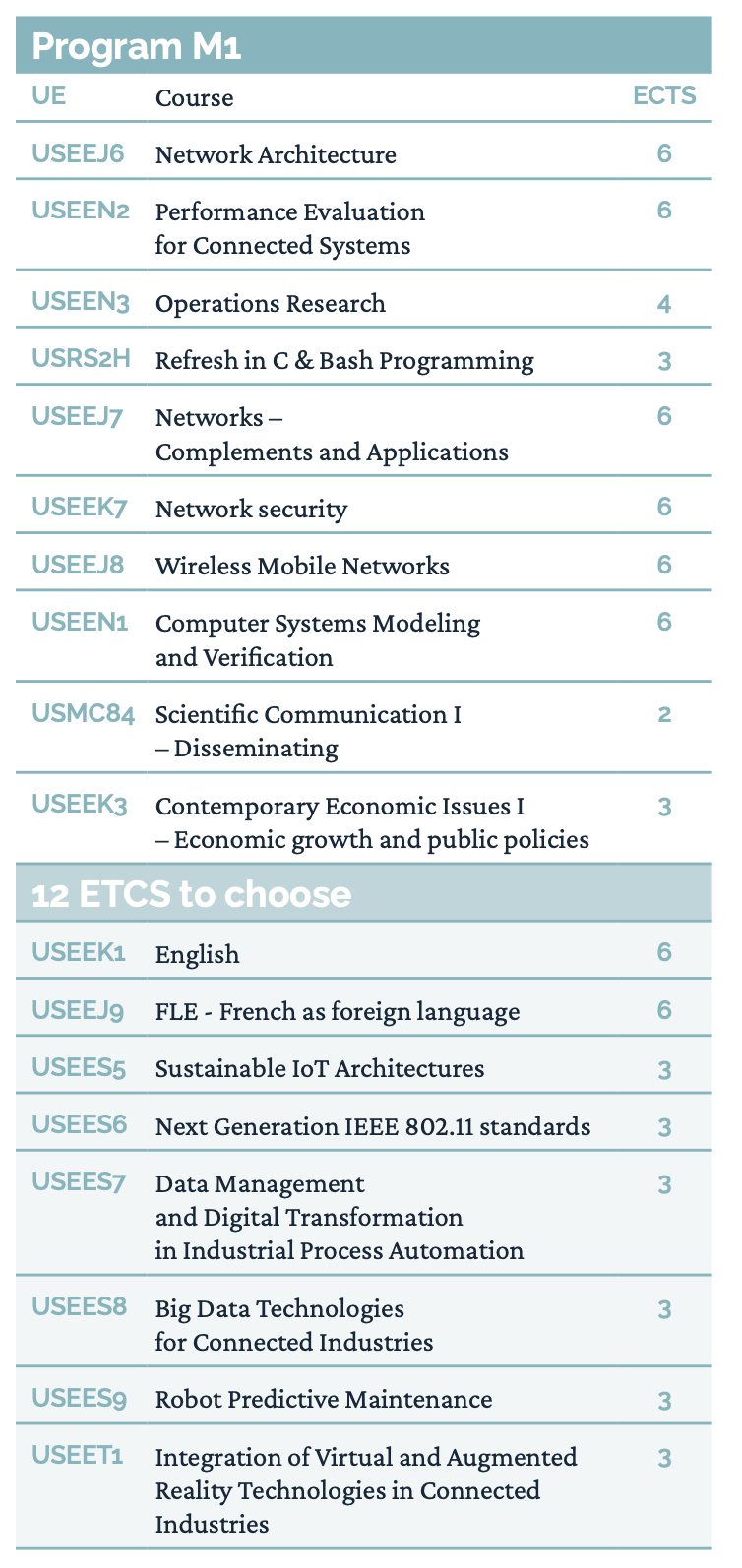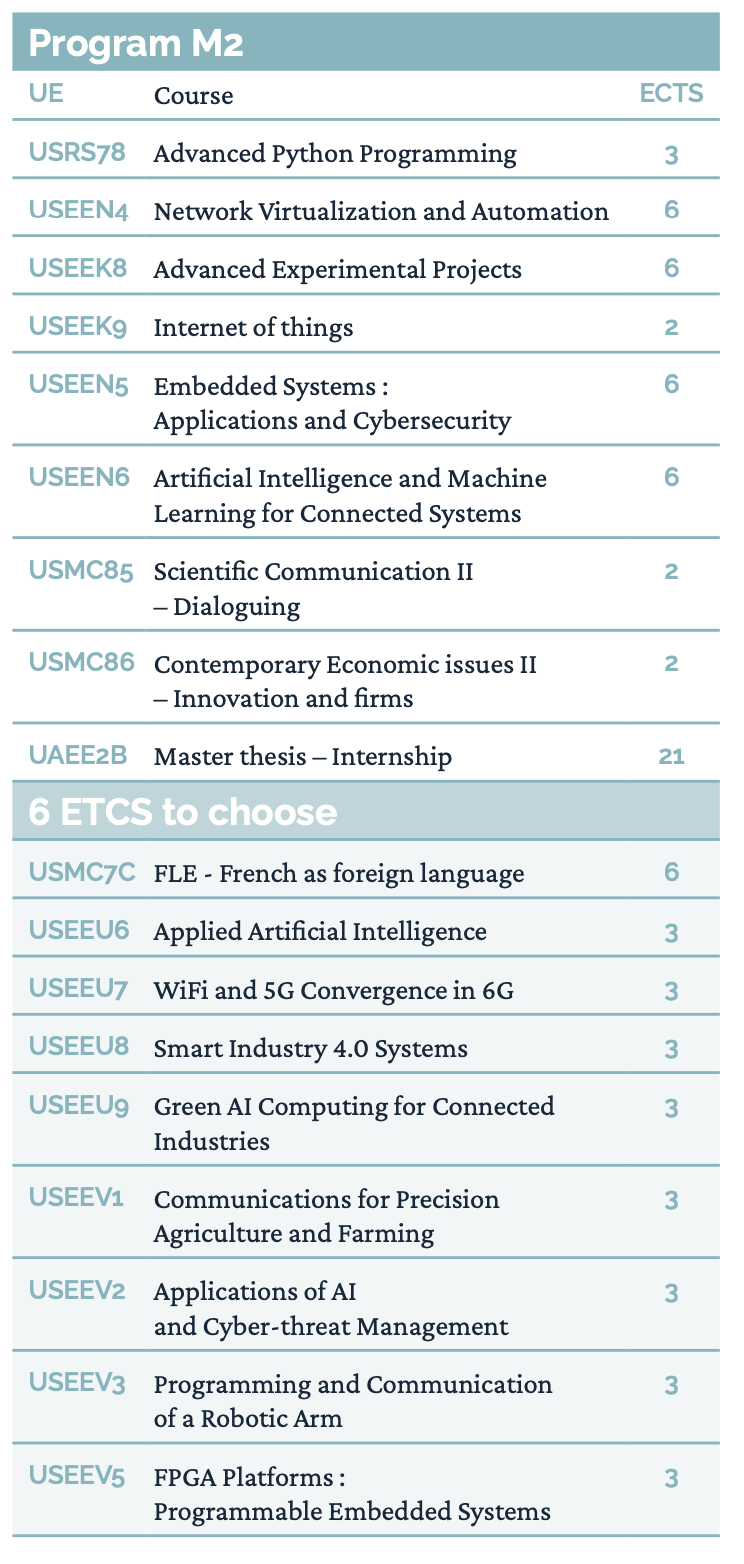Master registry information:
- Master Sciences, Technologies, Santé – Mention Informatique
parcours en anglais Computer Networks and IoT Systems - meaning Master of Science, Technologies and Health – Computer Science speciality, track taught in English Computer Networks and IoT Systems
- Master code: MR11601C
- Chair: Stefano Secci, Cnam.
- Vice-chairs: Pedro Braconnot Velloso, Sami Taktak, Pengwenlong Gu, Cnam.
- Contact: master-roc@cnam.fr
Paris:
- Language of instruction – English
- Mode of learning – daytime, full time, on-site and remote classes.
- Public: initial training, international.
- Length – M1: 1 year; M2: 1 year; M1+M2: 2 years.
- Teaching period: mid September to beginning of June.
- Synthetic fiche.
- French Ministry habilitation: until 31/08/2029 (fiche RNCP 39278)
Athens:
- Language of instruction: Greek, English
- Mode of learning – daytime, hybrid on-site and remote classes.
- Public: continuing education.
- Length – M2: 1 year.
- Teaching period: March to February.
- Synthetic fiche.
- French Ministry habilitation: until 31/08/2029 (fiche RNCP 39278)
A representation of the general planning of the master (on 2 years) is given by the below picture. Next we provide a synthetic description of each teaching module with the links to the detailed course program.


The detailed program of the teaching units is at this page.
Few notes on the language courses and the internship:
English (6 ECTS)
English course to elevate your current English level.
Students with a C2 level certified by the English professor can choose instead two short term courses among the other listed in the elective list of the M1.
Students without a C level are asked to do the English course even if elective.
French as foreign language (6 ECTS)
French course running on the first semester.
NB: les étudiants avec français comme langue maternelle ou avec un niveau C1 ou C2 déterminé avec un test au debut du cours peuvent choisir à la place deux short term courses de 3 ECTS en anglais (offerts sur à distance par le programme AI4CI) dans la liste suivante.
In M1, It is not required but possible to do an internship during the summer between the first and second year.
In M2, the internship is required in the curriculum. It has to be a 4 to 7 months compulsory remunerated internship (allowed by the French the student visa) at a company or academic research lab, in France, Europe or outside Europe.
The M2 internship can start in February, March or April and end in July, August or September.
More info here on master internships.

